Afghanistan War, Civil Liberties, Criminalizing Dissent, Habeas Corpus, Human Rights, Iran, Iraq Veterans, Iraq War, Political Prisoner, Prison Industry, Surveillance, War Resister
Podcast: Play in new window | Download
Updates:
- Attorney Heidi Boghosian Tells Of How She And Johanna Fernandez Found Out Mumia Abu-Jamal Was Rushed To Local Health Facility
- Campaign To Bring Mumia Home
- Attorney Michael Ratner: Hobby Lobby State Religious Freedom Acts
- Attorney Michael Ratner: Palestine Joins The ICC
- Attorney Michael Ratner: Obama Issues Executive Order On Hackers
—–


Why The Rise Of Fascism Is Again The Issue
Fascism has taken on many forms through the rise and fall of empires. One aspect of modern day fascism can seen as propaganda, lies and deceit used as political leverage to eventually absorb sovereign states. Our guest John Pilger lays out the swath carved by fascism in the last 70 years in his recent article Why The Rise Of Fascism Is Again The Issue. Using the word carefully, Pilger describes a new kind of fascism, centered in America but based on the big lie of war and aggression. Pilger documents key events from the Holocaust to Libya to Serbia, to Yugoslavia, to Afghanistan in the 1970s, to Vietnam and up to the current revival of fascism in the heart of Europe. We get a historic perspective from John Pilger, going all the way back to the second world war. If you think the wars in Iraq, Afghanistan, Yugoslavia, Libya and now the Ukraine occur by happenstance, you are mistaken says Pilger, an Australian-British journalist based in London. These are part of the American effort to become the global power.
Guest – John Pilger, an Australian-British journalist based in London. John has worked in many facets of journalism, including a correspondent in the Vietnam War, the Middle East Desk for Reuters in London, a documentary film maker, and a producer for the Independent Television Network in London. Pilger is known for his conscience, bravery and acute historical insight. His articles appear worldwide in newspapers such as the Guardian, the Independent, the New York Times, the Los Angeles Times.
————————————————————–

Is Law and Disorder important to you? Consider a tax deductible donation to the show. By making a donation, you’ll be helping Law and Disorder continue to provide the consistent high quality content on some of the most pressing legal, human rights and international issues. This radio show is now a sponsored project of Fractured Atlas, a non-profit arts service organization. Contributions for the charitable purposes of Law and Disorder must be made payable to Fractured Atlas only and are tax-deductible to the extent permitted by law.
Civil Liberties, Human Rights, Political Prisoner, Targeting Muslims, Torture, Truth to Power, War Resister
Podcast: Play in new window | Download

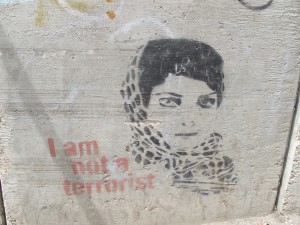
Israeli Journalist Amira Hass: Israel Elections and Palestinian Refugees
Last week during Israeli elections, Prime Minister Benjamin Netanyahu’s vowed that as long as he leads the country, there will be no Palestinian state, according to the Times of Israel. How can an Israeli government afford to ignore the humanitarian crisis in Gaza while Palestinian leadership advances international legal diplomatic action against Israel? How will these recent elections effect the future of the Palestinian state, Palestinian refugees and the right of return.
Amira Hass:
- I kept saying the right, right wing bloc is very strong it won’t change, maybe some configuration within the bloc. There wouldn’t be a real shift even into the center.
- Netanyahu keeps saying, the left wing, the left wing, and he means the Zionist camp or Labor. Let’s make it clear, its at best center-right.
- The Labor Party paved the way for where we are today. The Labor Party are the real experts in the colonial enterprise. All these peacekeepers Peres, Rabin, Belin arranged a situation that leads nowhere, a status quo in favor of colonialism
- The Palestinians gave us and gave Labor a golden opportunity in 1993 when they signed the Oslo Accords.
- The status quo keeps changing to favor the colonialist Israel
- They (Palestinians) accepted Israeli society, has its faults but also its things to like. They knew Israelis, they met them either at work or in prison . . . and they accepted the Israeli society. They saw it. They knew it exists. It is there, you cannot make it disappear.
- Without the 12 years of Nazi rule, most of the jews would not have chosen to immigrate to Palestine.
- Within the Oslo Accords, from the Palestinian side there was a potential of including these two historiographies that include the state of Israel.
- Palestinians are not a minority in the region. Indigenous Americans were made a minority very quickly with white’s immigration.
- The Palestinians are a majority in the region.
- Also, the Israeli policies, we have to be very strict about this, are not genocidal policies.
- The essence of Israeli oppression and colonialism is not about the elimination of the people, thankfully.
- It’s almost 70 years since the state of Israel and the Palestinians as a people, they grow. They were about 2-3 millions, and now they are about 13. So, we’re not talking about genocide.
- What Israel did very artfully and this is again credit to the main colonialist philosophy of the Labor Party, it concentrated Palestinians into their areas. You look at the map and you see the Palestinian enclaves. Before Oslo, the map that everyone had in his or her mind – the map of the West Bank was Israeli settlements scattered like spots in the W est Bank which was considered Palestinian.
- There were all kinds of Palestinian villages and Palestinians had the freedom of movement.
- When you look at the geography of Palestinians in Israel, they are encircled in enclaves. They are deprived of their land.
- Israelis will not change the situation. That is true about any privileged group in the world.
- The good thing that these elections brought us is the joint list of Arab-dominated parties.
Guest – Amira Hass, the only Israeli journalist to have spent several years living in and reporting from Gaza and the West Bank. Amira Hass writes a regular column in Ha’aretz newspaper, and is the author of Drinking the Sea at Gaza: Days and Nights in a Land under Siege, and Reporting from Ramallah: An Israeli Journalist in an Occupied Land, and also The Diary of Bergen Belsen – Haymarket Books 2009.
—–
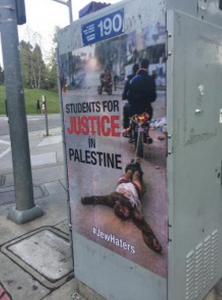
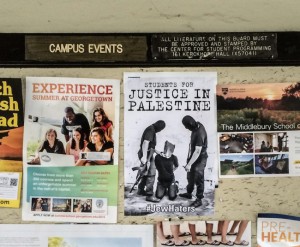
Jewish Voices For Peace And Students For Justice In Palestine
As the Boycott, Divestment, Sanction or BDS movement gains traction on college campuses, anti-Arab sentiment rears its head in many forms. For example, since the University of California Student Association passed a resolution recommending divestment, posters with violent images, calling Palestine solidarity activists anti-Semites and terrorists have appeared at multiple college campuses. Campuses include Drake University, DePaul, UMass Amherst, University of California, Irvine and the University of California, Los Angeles. We talk about that and also in another show of solidarity with Palestinians, the annual Jewish Voices For Peace national gathering had record attendance. Last summer’s assault on Gaza lead to a boom in JVP membership and donations, and a shift to the left among some liberal Zionists who decided to join JVP.
Alex Kane:
- Jewish Voices For Peace will continue to grow as the situation gets worse in Israel. That’s the productive tension from this conference.
- The Netanyahu win that you referenced is a gift to Jewish Voices For Peace and Students For Justice In Palestine and the larger Boycott, Divestment, Sanctions movement.
- There’s one stream of thought that as things get worse, as Netanyahu stays in office that it exposes the true face of Israel to the world.
- Since 2005, when hundreds of organizations within Palestinian society called for Boycott, Divestment, Sanction targeting Israel, the campus movement – Justice In Palestine has grown exponentially.
- You have dozens of new Students For Justice In Palestine chapters cropping up, even Jewish Voices For Peace chapters on campus. They’re broadening the discourse on campus. They’re bringing up the issue of Palestinian human rights and they’re pushing for divestment resolutions.
- Most of the resolutions are symbolic because they can’t force the universities to divest but it does lead to a push in media coverage and an increase with solidarity with Palestine.
- The opposition has come out strongly. The opposition ranges from well-funded right wing pro-Israel groups to even the Israeli government.
- It’s really remarkable; you have the Israeli consulate getting involved with campus politics in the U.S.
- It’s very easy for university presidents to come out against these incredibly hateful anti-Muslim posters. On the other hand, the same university presidents are part of this larger crackdown on Palestine solidarity on campus.
- Last year at Northwestern in Boston, they suspended their Students For Justice In Palestine chapter.
- Benjamin Netanyahu is the greatest gift to the Boycott, Divestment, Sanctions movement.
- The tensions between Obama and Netanhayu and the disrespect that Netanyahu has shown to the U.S. president has created some space on the left for them to get their message out that the U.S. should not be funding Israel to the tune of 3.1 billion dollars a year.
- The U.S. doesn’t care whether the Palestinians have a state or not. I don’t think this is a huge core issue of the Obama Administration.
Guest – Alex Kane is a freelance journalist writing for Mondoweiss and a graduate student at New York University’s Near East Studies.
——————————————————————–

Is Law and Disorder important to you? Consider a tax deductible donation to the show. By making a donation, you’ll be helping Law and Disorder continue to provide the consistent high quality content on some of the most pressing legal, human rights and international issues. This radio show is now a sponsored project of Fractured Atlas, a non-profit arts service organization. Contributions for the charitable purposes of Law and Disorder must be made payable to Fractured Atlas only and are tax-deductible to the extent permitted by law.
CIA Sponsored Terror, Civil Liberties, Criminalizing Dissent, Crony Capitalism, Gaza, Human Rights, Iraq War, NSA Spying, Political Prisoner, Surveillance, Targeting Muslims, Torture
Podcast: Play in new window | Download
Updates:
- Michael Ratner Updates On Julian Assange Case: You Can’t Just Keep A Case Going In Custody Essentially In The Embassy
- Julian Assange’s Case Could Go To European Court of Human Rights – Assange Is Being Arbitrarily Detained And Investigation Not Proceeding
- Eight Million Documents On Wikileaks In Highly Searchable Format
- Google Turns Over Wikileak Attorney Client Emails to U.S. Government.
- Federal Judge Denies EPIC’s FOIA Request On Government Surveillance Of Wikileaks Reporters – Denied Under Continuing Investigation Exemption
—–
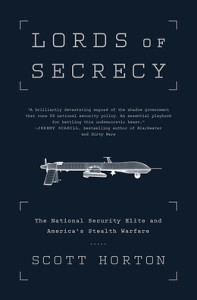

Lords of Secrecy:The National Security Elite and America’s Stealth Warfare
Nearly half a century ago a majority of Americans were concerned whether their country would go to war. It was a time when national debates and public discussions engaged America’s political consciousness. That’s not the case so much these days says our guest author and attorney Scott Horton. His recently published book Lords of Secrecy:The National Security Elite and America’s Stealth Warfare examines how secrecy within the United States government has corrupted fundamental systems of democracy. Scott Horton also surveys the legal authority that the current national security elite have based decisions to torture, wage war and subcontract private soldiers. When operating in secret, mistakes, excesses and crimes committed in the process are often kept quiet.
Attorney Scott Horton:
- Dick Cheney one of the longest serving secretaries of defense, because he had a peculiar atitude about secrecy. He manipulated the news secrecy all the time to give cover to claims and statements he made that turned out not to be true. These claims very frequently matters of the highest consequence.
- The entire case to go to war in Iraq which was in fact led by Dick Cheney rested on claims that they had weapons of mass destruction and that they had aligned themselves and were operating with Al-Qaeda that’s how we got the connection to 911. Those claims were very aggressively put forward by Dick Cheney. They turned out to be completely false. He parried any attempts to challenge them by saying all the intelligence we have on that is . . . secret, so I can’t share it with you.
- Of course, in good time we learned there wasn’t any intelligence or information that supported these claims.
- The lords of secrecy consist of the higher echelon officers of the national intelligence and security bureaucracy and they’re the people who have under American law, the power to create secrets using the classification authority.
- I make the case that they use that power very aggressively, very effectively to make themselves the ultimate decision makers on key national security issues and to remove those matters from the democratic, political process.
- It’s on the lords of secrecy who really influence the final decision when its made by the executive.
- The lords of secrecy, the people who wield the classification power also are part of a revolving door in Washington. They’re in government service, they leave that, they go to work as directors and senior officers of major contractors.
- Those contractors hold a half trillion dollars in contract business every year paid for by tax payers and they also make enormous campaign donations.
- Washington D.C. has emerged as the wealthiest standard metropolitan statistical area in the United States and that’s on the strength of the position of contractors and their ability to suck our treasury dry.
- What the American people don’t know about, they don’t form opinions about. They don’t conjutate about, they don’t become engaged with. That shows how secrecy and this other stuff are a very potent narcotic against democracy effectively, causing democracy to fade away while the national security elites are at the driver’s wheel making all the key decisions.
- I think it allows us to make war without going through the constitutional process.
- It’s really vague on how this go-to-war decision is supposed to be made. There’s the appropriation authority of Congress, there’s the Commander in Chief power of the executive, there’s the power to declare war, and exactly how those rights and powers play out in any given situation really isn’t clear.
- The bottom line is the US waging war overseas without the people of the United States having taken a decision to do so.
- My book has gotten much stronger attention in Europe than it has in the United States.
- A big part of the problem we have is the way national security and particularly intelligence community matters are reported in the United States.
- One thing I looked at the coverage of the drone war in Pakistan and I found very clearly Americans are actually the most poorly informed community globally on this issue.
- The media can’t really act without the whistleblower. It really comes down to the whistleblower being the last and best hope.
- The problem is national security whistleblowers don’t get a fair trial. They wind up being abused, mistreated.
- Let the Justice Department explain why they decided that Petraeus a slap on the fingers, nothing too serious, while they want to throw the book at Snowden.
- Let them give the rationale for the distinction between these cases. They’ve never done that.
Guest – Scott Horton, human rights lawyer and contributing editor to Harper’s Magazine. Scott’s column – No Comment. He graduated Texas Law School in Austin with a JD and was a partner in a large New York law firm, Patterson Belknap Webb & Tyler. His new book Lords of Secrecy The National Security Elite and America’s Stealth Foreign Policy.
—–

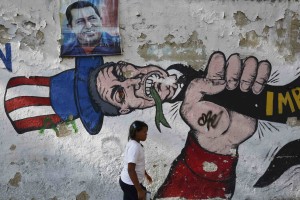
US Sanctions Against Maduro Government Officials
In its continuation of a decades long overthrow of the Venezuelan government, the United States issued new sanctions against Venezuelan government officials who the United States claims are involved in violating human rights guarantees. President Barack Obama issued an order declaring a national emergency with respect to Venezuela. The order lists certain key Venezuelan officials and said that any financial transactions with those officials are barred. This is typical of what the United States does to officials of government it doesn’t like, whether it was Nicaragua in the ’80s or Cuba since 1959 or 1960. These sanctions must also be seen the light of short-lived 2002 military coup in Venezuela in which the United States was deeply involved. Today we want to talk about the broader context of these actions and why the U.S. is continually trying to destabilize Venezuela.
Mark Weisbrot:
- It is pretty crazy that they have to declare Venezuela as an extraordinary threat.
- You don’t see any of the reporters asking the Whitehouse . . . what are you talking about?
- If you look at the Community of Latin American and Caribbean States for example, that is the alternative to the OAS, that was created a few years ago in response to US unpleasant actions in the hemisphere.
- Between 2000-2010 the Columbian military over 5700 innocent civilians, murdered them, and the United States just gave them more military aid.
- I was there during the protest a year ago, and of course it was very different from what I saw . . I was actually kinda shocked. I walked all over and took the metro all over Caracas and the only demonstration you saw were little uprisings in the richest neighborhoods.
- The people most affected the shortages, the ones that go and have to wait in line, can’t afford to buy anything in the black market.
- The poor and the working people, they haven’t protest because they mostly support the government.
- That’s a little bit of a disconnect from what you see in the press.
- This idea that the protests are related to the shortages doesn’t hold up when you see who’s actually protesting. These people have servants who do their shopping, wait in the lines.
- Upper middle class, they have servants, they have storage space.
- These sanctions are probably illegal under International Law.
- Again, there are things that are questionable, things that I wouldn’t try to defend but to create this picture, a very exaggerated picture that’s created here in the media because the U.S. wants to overthrow the government there I think is very unfortunate.
- Venezuela has been a target by the United States for a regime change for at least 13 years.
- A lot of people know if the opposition gets power, its just going to get worse for them.
- Venezuela is not facing a real balance of payment crisis, where they can’t pay for their import. They just have a dysfunctional exchange rate system and they have a fair amount of sabotage too.
Guest – Mark Weisbrot co-director of the Center for Economic and Policy Research, in Washington, D.C. to give us an update. He writes a weekly column for The Guardian Unlimited (U.K.), and a regular column on economic and policy issues that is distributed to over 550 newspapers by the Tribune Content Agency.
——————————————–
CIA Sponsored Terror, Civil Liberties, Criminalizing Dissent, Crony Capitalism, Gaza, Habeas Corpus, Human Rights, Political Prisoner, War Resister
Podcast: Play in new window | Download
Updates:
- Michael Ratner: Jury Awards $218.5 Million in Terrorism Case Against Palestinian Groups
—-


The Campaign For A Commercial Free Childhood
The National Football League, Mattel’s Girl Scout Barbie Doll, and even McDonald’s all have something in common. They’ve engaged in highly sophisticated corporate marketing aimed at enticing young children into becoming life-long consumers and brand loyalists. They’re the subjects of the efforts of The Campaign For A Commercial Free Childhood to cease clever marketing that sends the message that purchasing will make children happy. The campaign has a proven track record of educating families and the public about how industry partnerships with schools, nonprofits and trusted institutions such as the Girl Scouts expose young people to inappropriate content with potentially negative consequences.
Josh Golin:
- Very unfortunately, the Girl Scouts which has been traditionally a wonderful organization providing role models for girls launched a partnership last year with Barbie.
- This partnership includes a website where girls can play a Barbie game about choosing careers but really all they’re doing is looking at different Barbie outfits and seeing other Barbie dolls that they can buy in the store.
- There’s even a Barbie patch that Girl Scouts can earn.
- We thought that this was such a harmful campaign to young girls that the Girls Scouts have traditionally been a refuge from the commercialism that is aimed at kids everywhere and clearly Barbie represents a problematic body type and focus on appearance and fashion and is in some ways the antithesis of what the Girl Scouts have traditionally represented.
- They get 2 million dollars from Mattel from this partnership.
- The message to young girls that you have to look like a fashion doll when you’re going out on a hike is unbelievable.
- On the envelope that the report card came in was ad from McDonald’s saying bring your report card to McDonald’s if you had good grades or had good attendance or even good behavior and you get a free happy meal.
- We do a lot of work on the area of advertising in schools. It’s really an unfortunate trend. There’s been an increase in it since 2008 when we had the economic downturn and schools are understandably looking for revenue any way they can get it.
- There has been this increase in marketing to kids in schools and we think that’s particularly harmful to children. Anything advertised in the school comes with the school’s endorsement.
- One of the things that’s most concerning about what the NFL does is they market Fantasy Football extensively to kids. They even have a curriculum in school to teach kids about Fantasy Football where they could then go online to the kid NFL website and compete for cash prizes.
Guest – Josh Golin, is Associate Director of CCFC and organizes CCFC’s advocacy campaigns and develops its communications strategy. His writings about the commercialization of childhood have appeared in a wide range of publications.
——
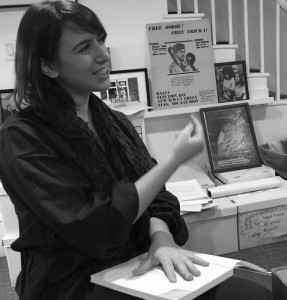
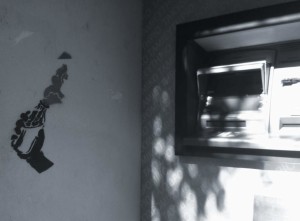
Greece Debt Crisis Postponed, Creditors Back Reform Plans
Earlier this year, we reported on the historic election voting in the Greek anti-austerity party of Syriza, led by Alexis Tsipiras. Syriza’s platform is to take back power within the Greek government, to effectuate a program that will call for cancellation of debt, nationalization of the banks, and expropriating closed factories. Greece is a member of the Eurozone, the nations that have joined with a common currency in 1999. Now, after barely a month in office, the Syriza Party led by Prime Minister Alexis Tsipiras has been forced to make compromises on major issues such as labor reforms and agreeing not to undo privatization plans, to name a few. The crisis began when the European Central Bank said it would reject Greek sovereign bonds as collateral which made Greek banks dependent on Emergency Liquidity Assistance. Last week, Syriza entered negotiations with the EU and ECB and secured a four month extension of its financial rescue.
Nantina Vgontzas:
- Let’s start with December 2009 when the Greek government declared in had sovereign debt of 109 percent, which is something they’ve been covering up the past few years.
- Goldman Sachs was also involved with helping them to cover up those figures.
- We should look at the political economy of the Eurozone constructed in the early 2000s. At the same time in Germany you had wage depression, meaning Germans were getting lower wages so that German exports would become more competitive and the European periphery was used as a dumping post. So they were getting more lending from German banks and that’s how you started getting more debts in Greece.
- The European Union, The European Central Bank and the International Monetary Fund which has played its hand since the 70s in imposing discipline on the countries throughout the developing world and Greece was the first so called advanced country that was starting to enter into this regimen of so called structural reforms that were attached to these bailouts that Greece was recieving to deal with the debt issue.
- Attached to these structural reforms was the termination of collective bargaining agreements, the reduction of minimum wage . . . so you have massive social degradation and at the same time the debt continues to rise.
- So the debt went from 109 percent of the GDP to 175 percent of the GDP.
- So Greece is basically getting loans so it can pay interest on interest starting in the early 2020s and Syriza rightfully identified this as an extended pretend strategy.
- They were the opposition government between 2012 and the end of 2014 and in 2015 they got 35 percent of the vote which wasn’t enough to form a government on its own which is why it had to form a coalition government.
- Everybody knows that Greece can’t pay off its debt til the early 2020s.
- I’ve written a piece in the Jacobin saying that I don’t think Eurozone would take any chances on letting Greece leave the Eurozone because of how helpful it has been to German capital. They’re not willing to take the long term risk, they’re not will to take the short term risk of speculative attacks that would occur on the Eurozone.
- A Greek exit could have produced a domino effect, perhaps Portugal would have left, Italy, you start having big economies like Spain leaving. That kind of domino effect would be unsustainable for the Eurozone to exist.
- There are ways of dealing with this (Greece leaving the Eurozone) You would have to impose capital controls, you would have to nationalize the banks, which is something that the Syriza leadership said that they wouldn’t do prior to elections. They’re going to have to revisit that strategy. Then you would have to figure out how you would ration food, fuel, pharmaceuticals in order to deal with immediate problems. Then you would have to talk about long term policies that would promote growth.
- They (Syriza) cannot move to a technocratic approach because then they would lose thier fundamental element as a left party.
- Half of the police corp (in Greece) support the Golden Dawn. This is something that Syriza has to neutralize while they’re in power.
- They need to be neutralized by promoting a strategy that’s actually going to reverse austerity.
- Jacobin Magazine -Nantina Vgontzas /Financial Times – Wolfgang Munchou
Guest – Nantina Vgontzas, a Greek-American PhD student in sociology at NYU focusing on political economy and social movements. She is a member of the UAW Graduate Student Organizing Committee and is involved in the Academic Workers for a Democratic Union reform movement.
——————————————————–
CIA Sponsored Terror, Criminalizing Dissent, Guantanamo, Human Rights, Political Prisoner, Prison Industry, Torture, Truth to Power
Podcast: Play in new window | Download
Updates:
- Michael Ratner: Palestine Not Recognized As State By U.S. Thus Allowed To Be Sued In Federal Court For Attacks on Israel
- Michael Ratner: Why Is Obama Trying To Get An AUMF When The U.S. Is Already At War With ISIS? If Passed, The U.S. Under This Act Can Make War Everywhere
- ICC En Vogue? – Hosts Talk About NBC Drama “Crossing Lines.”
—–


Pelican Bay Solitary Confinement Case Update
We bring you an update on the Pelican Bay Prison Solitary Confinement Case. As you may recall Pelican Bay Prison had more than 1000 prisoners in long term solitary confinement at 10-20 years or more. The Center for Constitutional Rights and its lead attorney Jules Lobel have been challenging this practice for a number of years since 2012. Recently, the state of California in an effort to blunt the lawsuit has transferred some of the named plaintiffs to other prisons. Their theory, once we’re rid of the plaintiffs maybe we’re rid of the lawsuit. CCR and Jules Lobel went out to California to argue that this is not a Constitutional practice. That transferring a person from Pelican Bay to another prison in California should not blunt the lawsuit and in fact CCR we should be able to challenge solitary confinement in those prisons as well. The judge agreed and now the CCR case will not just challenge Pelican Bay Prison solitary confinement practices but those in other prisons throughout California.
Attorney Jules Lobel:
- Because of 3 hunger strikes and our litigation the California prison officials are now instituting reforms. They realize they have to do something.
- There are over 1000 people in solitary. When we started the case 500 people were there for over 10 years.
- Because of the reforms they’ve made under pressure from our litigation there are now only 230. Still 230 people for over 10 years is a huge amount.
- They’re also moving people out not only to general population prisons, but to other solitary units in other prisons. Other SHOES, its called Special Housing Unit.
- Four of our ten plaintiffs are moving to another SHOE to a place called Tahachapi and the defendants say, they’re no longer part of your case.
- That’s what the argument was about. The argument was about whether or not you can expand the case beyond Pelican Bay.
- If you were at Pelican Bay and transferred to another prison, still in solitary, you’re still part of our class.
- The judge accepted that we can expand the case, rejecting the state’s argument.
- We bifurcated the trial so we could have a relatively quick trial on Pelican Bay. The fundamental question for Pelican Bay trial is whether keeping people for a prolonged period of time in solitary confinement at Pelican Bay is cruel and unusual punishment.
- We also have a claim in that way that they are placed there. It violates due process.
- These guys only get reviews every six years. So, you stay in your cell for six years and then after six years somebody comes and reviews whether you should be kept in solitary.
- No state in the country has six years. Usually its 30 days, 90 days, six months, maybe at most a year.
- California unlike most states puts people into solitary simply because they’re a member of a gang or associated with a gang.
Guest – Attorney Jules Lobel, has litigated important issues regarding the application of international law in the U.S. courts. In the late 1980’s, he advised the Nicaraguan government on the development of its first democratic constitution, and has also advised the Burundi government on constitutional law issues. Professor Lobel is editor of a text on civil rights litigation and of a collection of essays on the U.S. Constitution, A Less Than Perfect Union (Monthly Review Press, 1988). He is author of numerous articles on international law, foreign affairs, and the U.S. Constitution in publications including Yale Law Journal, Harvard International Law Journal, Cornell Law Review, and Virginia Law Review. He is a member of the American Society of International Law.
——

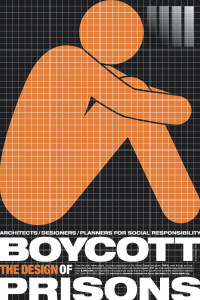
Architect’s Human Rights Code of Ethics Petition
In our coverage of psychologists involved with torture continuing to hold their professional licenses to practice we look at a similar concern with licensed architects who design prisons, solitary confinement cells and death chambers. Research has show that the design of a prison can influence many aspects of prisoners lives including recidivism rates. Recently, the American Institute of Architects rejected a petition to censure members who design solitary confinement cells and death chambers.
Raphael Sperry:
- In 2013 when the UN Special Rapporteur on Torture announced that spending more than 15 days in solitary confinement was a human rights violation and we’re aware that people in the United States are routinely held in solitary for years if not decades, and that there had been dozens of supermax prisons that housed thousands of people in those conditions, specially designed for that purpose, that really tipped the scales.
- That was really shocking to realize the same tools that architects use everyday trying to make the world a better place for people can be used to torture and kill people.
- The question of what constitutes a torture chamber is complicated. There are many buildings that have been used to house prisoners in solitary confinement that were never designed for that purpose.
- There are a subset of prisons that are designed for solitary confinement. They’re usually called administrated segregation units.
- Supermax prisons are the most egregious. There’s no space for people to eat together. There are no tables with seats clustered around them even.
- The recreation spaces that prisoners have a right to go into for an hour a day, are shrunk down to size that they’re for just one person.
- You guys are probably familiar with ADX Prison in Florence, the Federal Supermax which is supposed to be the most secure supermax in the United States.
- In that facility they actually have showers in every cell. The prisoners then actually don’t have to get into the hallway. They might walk by somebody elses’ cell or walk by somebody elses’ cell to get to a shower.
- The AIA has a code of ethics for members and it already had a statement saying members should uphold human rights in all their professional responsibilities.
- It’s not directly enforceable. If members set out to design a space intended to kill somebody or to torture them or degrade them which is a human rights violation. AIA is not prepared to take any disciplinary action to someone who does that.
- We were asking them to simply add a rule that clarified if a member designed a space that is intended for human rights violations specifically execution and prolonged solitary confinement that it would be clear they’re in violation of the code of ethics and then AIA could take disciplinary action that include censure and expelling them from the institute.
- The National Board of Directors gets to set the ethics code for the whole organization including all the chapters. They took in our petition. They took in all the letters of support we sent in.
- Then they didn’t communicate with us . . they referred it to an internal group. They never let us know who was on that panel. They sent a brief letter back to me head of the ADPSR saying that they weren’t going to make the change and they were concerned about potential anti-trust violations and how hard it would to enforce.
- Lastly, they don’t want to restrict their members from designing any particular building type. I just found that to be the worst.
- To me if you’re going to be a professional and take on the responsibility of protecting public health, safety and welfare every time you put your pencil down then there should be limits to what you do with that specialized knowledge.
- To us its not a political issue, its a human rights issue and they said they’re an organization that’s for human rights. It didn’t seem right to us that they should pick and choose which human rights they’re ok with and which ones they would restrict.
Guest – Raphael Sperry, president of Architects / Designers / Planners for Social Responsibility (ADPSR), a 32-year old independent non-profit organization. He researches the intersection of architecture and planning with human rights with a special focus on prisons and jails, and advocates for design professionals to play a larger role in supporting human rights in the built environment. He directs ADPSR’s human rights advocacy, including ADPSR’s petition urging the AIA to amend their Code of Ethics and Professional Conduct to address buildings that violate human rights. He was the first architect to receive a Soros Justice Fellowship from the Open Society Foundations, hosted jointly by the University of California at Berkeley College of Environmental Design and Berkeley Law School, in 2012. He is an active member of the AIA Academy of Architecture for Justice and a leader of its subcommittee on sustainability.He holds an M.Arch. from the Yale School of Architecture and a BA summa cum Laude from Harvard University.
—————————————

Please help support Law and Disorder by clicking on Fractured Atlas graphic. This radio show is now a sponsored project of Fractured Atlas, a non-profit arts service organization. Contributions for the charitable purposes of Law and Disorder must be made payable to Fractured Atlas only and are tax-deductible to the extent permitted by law. You can donate as little as 5.00 a month.

















